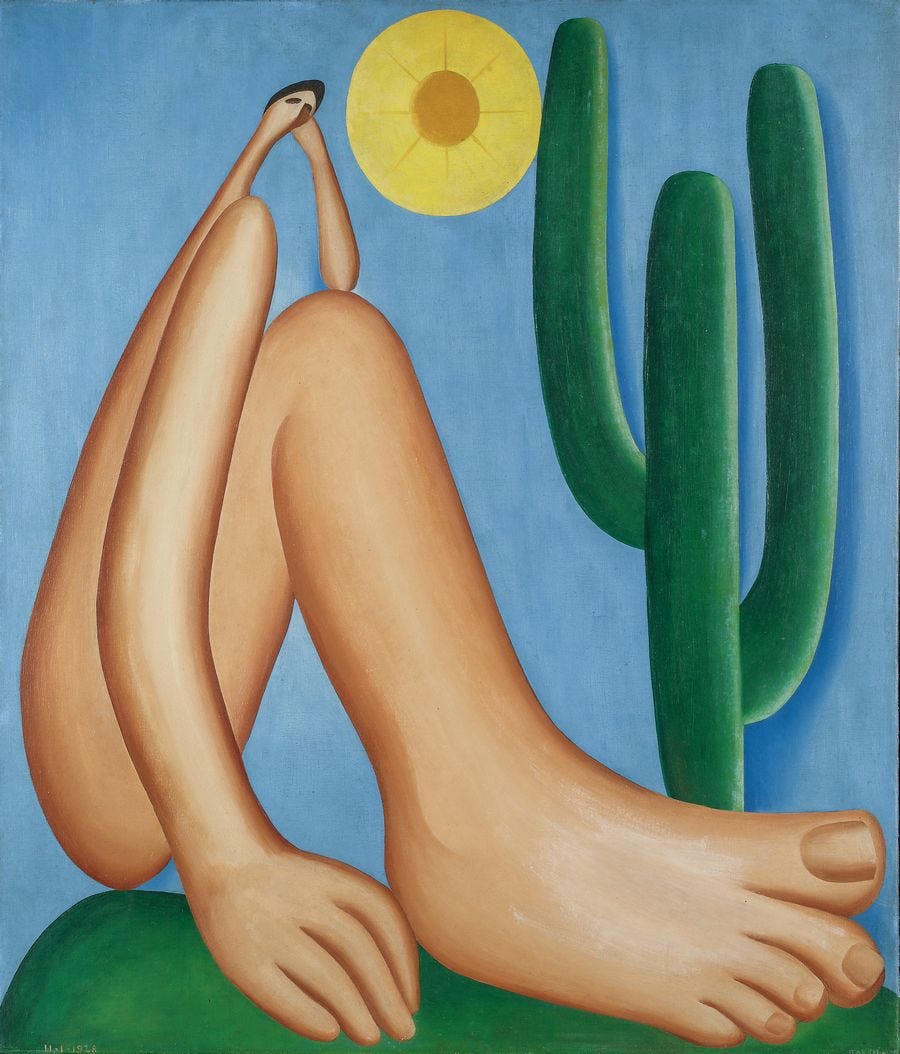On Taking Brain Breaks
It’s tough to find words in the face of the enormity of the world’s grief right now. I am heartbroken for the Palestinian, Israeli and Jewish people, and I am holding my friends who have been directly affected this week with so much love in their grief and sorrow. To be sure, these are times of grief and sorrow.
These are also times of extreme nervous system distress, something this newsletter has always thought a lot about. I have found myself frozen all week, moving between states of anxiety, numbness, anger, disbelief and sadness. There is no way that you can be an alive human this week and not have experienced some nervous system distress. What do you do to take care of yourself in that? How do you process your grief? Maybe you forget to take care of yourself, which is understandable. Much of what happens during times like these is a freeze response, a shutdown. We turn away because it’s too much to take in, to understand. Or we fight for the same reasons.
On my way to the park this morning to deal with my own nervous system regulation, I remembered a conversation with a friend in 2020. She was panicking about the impending lockdown, and I suggested she go outside to the tree by her house and take some deep breaths. It was not even close to the right call for her, and she couldn’t have been more annoyed with the suggestion. We hung up, and she later texted me, “I don’t want to be told to meditate right now". Fair.
I’m hesitant to offer any nervous system resources when these types of resources seem somewhat futile. But I have noticed a tightness in my body, my chest, my heart, my mind — odds are that some of you have had the same tightness. We have to deal with the tightness somehow, at least I do. That may look different for each of us. For me, it’s a mix of positive coping (like sitting under a tree in the middle of the city, moving my body as much as I can and attempting — operative word attempt here — to stay off social media) and less positive coping (google mapping “croissant” to increase gluten intake, staying up too late and lapsing on a months-long sugar detox).
There is no way around it: we are being bombarded with traumatic information and imagery, which can result in a feeling of helplessness. This week, I’m offering some ideas to give your brain a break, as much as you might be able to. Our brain is not meant to be constantly engaged. It needs breaks so it can keep going and so you can feel more settled in your body. Use one of these practices to get into your body and out of your thinking mind, if only for a short respite.
Breathe. Taking some deep breaths will help regulate the stress response in your body. Start with a big inhale, and hold it in for a moment. Then release your breath out all the way. Now, inhale slowly through your nose. Count to 4. Hold for a moment. As you hold your breath, notice the space between the breaths. Then exhale to 4 and hold the breath out at the bottom of the exhale. When you hold, again notice the space between the inhale and the exhale. As you breathe, you can imagine each breath washing over your brain (in a good way). Send your breath to each part of your body. Repeat this process until you notice a state change.
Find what works for you. What makes you feel good that doesn't involve a screen? Cooking a meal? Listening to your favourite song? A tea or coffee break? Walking in nature? Journalling? Taking a bath? Calling a friend rather than texting them? You definitely have something that replenishes your energy; we all do. Write down five things that replenish your energy. Keep those five things in plain sight by your desk or in a note on your phone. When you hit a wall, reach for one of those things and give yourself a 5-15 minute break doing one of them.
Dance. Dancing really does sweep out the cobwebs of our minds, and I will never stop proselytizing about it. And if we approach it as a simple embodiment practice, it can provide real shifts. Have you ever gone out dancing and stayed completely sober? I did not for a long time. Then I did for a long time, and I find it remarkable how uplifted I can feel just from dancing. There is nothing like a natural high from jumping around in a room full of people with good music. This one is easy: turn on a song and dance for the entirety of it. Don’t stop. When it ends, slow down, and place your hands somewhere on your body. Notice how your body reacts.
With love,
Nora x




